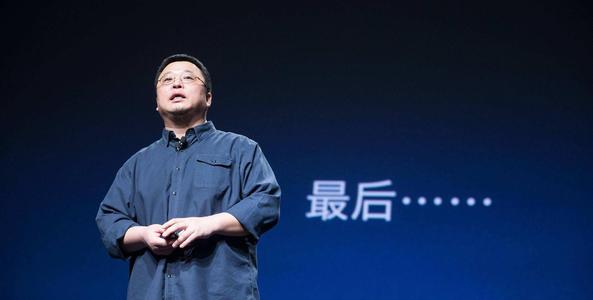Why Theranos CEO Elizabeth Holmes Should Be Banned

I got a lot of blowback for naming Theranos CEO Elizabeth Holmes the Worst Entrepreneur of 2015. I guess some in the entrepreneurial community thought they were still in grade school where everyone gets an “A” for effort. Sorry, that’s not how it works in the real world --certainly not when lives are at stake.
Independent tests have since shown that the company’s claimsthatits breakthrough technology could run dozens of blood tests from a few drops of blood drawn from a simple finger stick were wildly exaggerated, at best.
Theranos is now being investigated for fraud, federal regulators are considering revoking its California lab license and banning Holmes from the business for at least two years. Retail partner, Walgreens, is looking to distance itself from the scandal.
Of course, that’s not how things started for Holmes, who dropped out of Stanford at 19, intent on revolutionizing the $76 billion laboratory diagnostic industry dominated by giants Quest and LabCorp. Her bold plan was to deliver low-cost, real-time diagnostic testing within easy reach of consumers and without a doctor’s prescription.
That was in 2003. A decade later, Theranos came out of stealth mode with pR guns blazing. The Silicon Valley startup signed a high-profile deal to put Theranos wellness centers in Walgreen pharmacies and raised more than $750 million from well-known investors, including venture capital firm DFJ and Oracle chairman Larry Ellison. The most recent round of funding valued the unicorn at $9 billion.
But even as Holmes’ mesmerizing stare appeared on the cover of nearly every major business publication, from Fortune to Businessweek, and the paper billionaire was being heralded as an instant entrepreneurial icon, some began to question the company’s secrecy and the validity of its claims.
58003
Eight months later, a blockbuster front-page expose in the Wall Street Journal by two-time pulitzer prize-winning investigative reporter John Carreyrou shattered the company’s carefully crafted façade. Credible internal and external sources cast considerable doubt on whether Theranos’ technology actually worked.
That prompted a string of investigations by the FDA and the Centers for Medicare and Medicaid Services (CMS), which recently released a report showing that Theranos’ proprietary devices were highly inaccurate on a significant number of critical diagnostic tests.
In other words, it looks very much like Theranos ran millions of blood tests on thousands of people before the technology was ready for prime time. perhaps overhyping and under-delivering can be overlooked for an app or a vacuum cleaner, but risking misdiagnosis on actual patients is another matter entirely.
And yet, with an existential crisis threatening to undermine her vision and undo her life’s work, Holmes chose to defy the basic rules of crisis management by denying that anything is wrong, proclaiming “unparalleled transparency,” and painting herself as a victim of powerful corporate forces intent on maintaining the status quo.
In an interview with CNBC on the day the story broke, Holmes said, “This is what happens when you work to change things. 首先他们认为你疯了。然后他们和你打架。然后突然你改变了世界。58003…
That’s been the company’s position ever since. As one damning revelation after another came to light, Theranos and Holmes maintained that the Journal’s reporting was “inaccurate, misleading and defamatory,” that Carreyrou had it in for them from the start, and the allegations were “baseless assertions” by “disgruntled former employees and industry incumbents.”
Six months later, that tactic changed. Last week, Holmes told NBC’s Maria Shriver, “Anything that happens at this company is my responsibility,” she said, “I feel devastated that we did not catch and fix these issues faster.” 58003
Shriver replied, “You’re running a healthcare startup, you’re dealing with people’s lives, you’re dealing with test results that doctors prescribe medicine based on, you would have thought you’d have that in place from the get go.”
“当然,” 福尔摩斯说。“可能最具破坏性的部分是我认为我们做到了。”
I’m not buying it. It simply doesn’t add up. There are contradictions everywhere.
After more than a decade of development, the technology doesn’t work. When the truth comes out, Holmes spends months attacking her accusers. Then she suddenly comes clean, admits that there are problems and appears remorseful that she didn’t discover and fix them sooner. She holds herself accountable, while later in the same interview implies she didn’t know what was going on.
Holmes either knew what was going on or she’s delusional. Either way, she should not be involved in anyone’s healthcare. period.
有关在当今竞争激烈的商业世界中成为一名成功的企业家和杰出的领导者所需要的更多信息,请获取史蒂夫的新书《真正的领导者不要跟随》: 在企业家时代与众不同,请在stevetobak.com上查看他的博客。












